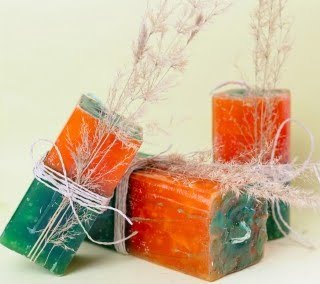Feng Shui, an ancient Chinese practice of balancing energy in a space, has gained popularity worldwide for creating harmony and positivity in homes. Implementing Feng Shui throughout your entire house, known as feng shui whole house, can bring about a sense of balance and well-being in your living environment. By understanding the basics of Feng Shui and its principles, you can transform your home into a sanctuary that promotes positive energy flow.
The history of Feng Shui dates back thousands of years, with its roots deeply intertwined with Chinese philosophy and beliefs. As a practice that focuses on creating equilibrium between individuals and their surroundings, Feng Shui has evolved over time to become a widely recognized method for enhancing the energy flow in homes. Understanding the origins of this ancient practice can provide insight into how it can benefit modern living spaces.
By aligning your entire house with Feng Shui principles, you can experience a range of benefits that extend beyond just aesthetic appeal. From improving relationships to boosting overall well-being, implementing Feng Shui techniques can have a profound impact on various aspects of your life. By taking the time to assess your current home’s energy flow and making adjustments based on Feng Shui guidelines, you can create a harmonious atmosphere that supports your physical, emotional, and spiritual well-being.
History of Feng Shui
Feng Shui, a practice originating from ancient China, has a rich history that dates back thousands of years. The term “Feng Shui” translates to “wind-water” in English, representing the belief that wind and water are essential elements for maintaining good health and fortune.
This traditional practice focuses on balancing the energies in a space to promote harmony, prosperity, and well-being. Over time, Feng Shui has evolved into a comprehensive system that includes various principles and techniques to enhance the flow of positive energy in different environments.
One of the earliest recorded references to Feng Shui can be traced back to the Classic of Burial, an ancient Chinese text dating back to the 4th century BCE. This text laid the foundation for Feng Shui by emphasizing the importance of aligning structures with nature’s energy patterns to promote auspicious outcomes. Throughout history, Feng Shui has been influenced by different schools of thought and cultural beliefs, resulting in various interpretations and practices across different regions.
As Feng Shui gained popularity beyond China’s borders, it started to integrate with different design philosophies and spiritual practices worldwide. Today, many people view Feng Shui as more than just a way to arrange furniture or decorate spaces; it is seen as a holistic approach to creating a harmonious living environment that nurtures both physical and emotional well-being.
By understanding the history and evolution of Feng Shui, individuals can appreciate its profound impact on shaping living spaces and improving overall quality of life. Incorporating these ancient principles into your home can help you create a sanctuary that supports your goals and aspirations while promoting positivity and balance throughout your life.
- Ancient Chinese texts like the Classic of Burial laid the foundation for Feng Shui
- Feng Shui evolved into a comprehensive system integrating various principles over time
- Influence beyond China’s borders led to integration with different cultures worldwide
Benefits of Implementing Feng Shui in Your Entire House
Feng Shui is an ancient practice that focuses on creating a harmonious living environment by balancing the energy flow within a space. When it comes to implementing Feng Shui in your entire house, the benefits go beyond just aesthetic appeal. By aligning your whole house with Feng Shui principles, you can positively impact various aspects of your life, including your health, relationships, and overall well-being.
Here are some key benefits of incorporating Feng Shui throughout your home:
- Improved Energy Flow: One of the main goals of Feng Shui is to promote the smooth flow of positive energy, known as “qi,” throughout your space. By ensuring that the energy in your whole house is balanced and harmonious, you can create a more uplifting and vibrant atmosphere.
- Enhanced Creativity and Productivity: Implementing Feng Shui in your entire house can help stimulate creativity and boost productivity. By optimizing the layout and design of each room based on Feng Shui principles, you can create a conducive environment for focus and inspiration.
- Better Relationships and Communication: Feng Shui is also believed to have a positive influence on relationships within the household. By applying Feng Shui techniques in each room, you can foster better communication among family members, strengthen bonds, and create a supportive environment for all occupants.
Overall, aligning your whole house with Feng Shui principles can lead to a more balanced, harmonious, and prosperous living space. By taking the time to assess the energy flow in your home and making simple adjustments based on Feng Shui guidelines, you can create a nurturing environment that supports your physical, emotional, and spiritual well-being.
Assessing Your Current Home’s Energy
Assessing the current energy flow in your home is an essential step before implementing Feng Shui changes to create a harmonious living space. One way to start this evaluation process is by simply observing how energy flows within your home. Walk through each room and take note of any areas that feel stagnant, cluttered, or unwelcoming. These areas may indicate blockages in the flow of positive energy, known as chi in Feng Shui.
Another technique for assessing your home’s energy is by using a Bagua map, which is a tool used in Feng Shui to identify different areas of energy within a space. By overlaying the Bagua map onto your floor plan, you can pinpoint specific areas related to different aspects of life, such as health, wealth, relationships, and career. This can help you understand where improvements are needed to enhance the overall energy balance in your home.
In addition to observation and using tools like the Bagua map, it can be helpful to consider the emotional and physical impact of each room in your house. Notice how each space makes you feel – are you energized and inspired, or do you feel drained and stressed?
By tuning into these feelings, you can gain insight into how the current layout and design of your home may be affecting your well-being. Taking these steps to assess your home’s energy will better prepare you for implementing effective Feng Shui changes that support a sense of balance and harmony throughout your entire house.
Feng Shui Tips for Different Rooms
When it comes to applying Feng Shui principles in different rooms of your house, each area serves a unique purpose and requires specific attention to create a harmonious living space. Starting with the bedroom, it is essential to position the bed in a command position, allowing you to see the door while lying down and symbolically control the space.
Avoid placing the bed directly opposite the door or under a window, as this can disrupt the flow of energy. Additionally, incorporate soothing colors, soft fabrics, and meaningful artwork to promote relaxation and enhance positive energy flow.
Moving on to the kitchen, which is considered the heart of the home in Feng Shui, it is crucial to keep this area clean, well-organized, and clutter-free. Implementing proper lighting and ventilation can also contribute to creating a vibrant and nourishing environment.
Positioning the stove in a commanding position where you can see the door while cooking symbolizes prosperity in Feng Shui principles. Consider adding elements such as live plants or fresh herbs to invite growth and abundance into your culinary space.
Incorporating Feng Shui techniques in your bathroom involves maintaining cleanliness and good ventilation to prevent stagnant energy from accumulating. Keep drains unclogged and fix any leaks promptly to promote positive energy flow throughout this space. You can add elements such as mirrors or fresh flowers to enhance brightness and freshness in your bathroom. By following these room-specific recommendations for applying Feng Shui principles throughout your entire house, you can cultivate an environment that supports overall well-being and balance.
| Room | Feng Shui Tips |
|---|---|
| Bedroom | Position bed in command position, incorporate soothing colors and artwork |
| Kitchen | Keep clean and organized, place stove in commanding position for prosperity |
| Bathroom | Maintain cleanliness, good ventilation, add elements like mirrors or fresh flowers |
Decluttering and Organizing
The Impact of Clutter on Energy Flow
Clutter is often described as stagnant energy that can block the natural flow of chi in your home. Whether it’s piles of paperwork in the office, clothes scattered across the bedroom floor, or unused items collecting dust in the attic, clutter can create obstacles that impede the circulation of positive energy. By clearing out excess belongings and organizing your space effectively, you can remove these barriers and invite positive chi to circulate freely throughout your home.
Tips for Decluttering With Feng Shui
To declutter with feng shui in mind, it’s important to be mindful of not just what you’re getting rid of but also how you’re doing it. Start by assessing each room and identifying areas where clutter tends to accumulate. Begin with small steps like clearing off surfaces, creating designated storage spaces for items, and incorporating organizational tools like baskets or bins.
Consider the functionality and aesthetics of each area as you declutter, aiming to create balance and harmony within the space. Remember that decluttering is an ongoing process – regularly review your belongings and continue to purge items that no longer serve a purpose in your home.
Organizing for Positive Energy Flow
Once you’ve decluttered your space, organizing becomes key to maintaining a harmonious environment based on feng shui principles. Arrange furniture in a way that promotes easy movement throughout each room while allowing for clear pathways for energy to flow unobstructed.
Incorporate elements like mirrors to reflect light and open up spaces or plants to freshen the air and bring life into your home. By intentionally organizing your space with feng shui guidelines in mind, you can enhance the flow of positive energy and create a more balanced atmosphere throughout your entire house.
Incorporating Feng Shui Elements
Feng Shui is a practice that believes in balancing the energies in our living spaces to promote harmony and well-being. One essential aspect of Feng Shui is the incorporation of the five elements – wood, fire, earth, metal, and water – throughout your home. Each of these elements carries specific energy that can influence different aspects of your life. By strategically placing these elements in your space, you can enhance the flow of positive energy and create a more balanced environment.
Wood represents growth, vitality, and creativity in Feng Shui. To incorporate the wood element into your home, you can add plants, wooden furniture, or decor items made from wood. These elements not only bring a sense of nature indoors but also encourage personal growth and development. Placing green or floral patterns in specific areas can further amplify the energy of the wood element in those spaces.
Fire symbolizes transformation, passion, and energy. Incorporating the fire element into your home can be as simple as adding candles, artwork depicting flames or sunsets, or introducing shades of red or orange in your decor. The presence of the fire element can ignite motivation and drive within you while creating a warm and inviting atmosphere throughout your space.
Earth represents stability, nourishment, and grounding. To enhance this element in your space, consider incorporating earthy tones like browns and yellows, clay pottery, stones or crystals, or images of landscapes. By strengthening the earth element in key areas of your home such as the center (or heart) area according to the Bagua map used in Feng Shui practice-you can promote feelings of security and balance for yourself and those who reside with you.
| Elements | How to Incorporate |
|---|---|
| Wood | Add plants or wooden furniture |
| Fire | Use candles or decor with red/orange hues |
| Earth | Incorporate earthy tones or stones/crystals |
Activating Prosperity and Health Areas
When it comes to Feng Shui, certain areas of your home are believed to have a direct impact on your prosperity and health. By activating these specific areas using Feng Shui principles, you can enhance the flow of positive energy and create a more harmonious living environment. Understanding the key areas in your home that are linked to prosperity and health is crucial for implementing effective Feng Shui practices throughout your entire house.
Wealth Area
In Feng Shui, the southeast corner of your home is typically associated with wealth and abundance. To activate this area, consider incorporating elements such as wood or water, which are believed to attract prosperity. You can also place symbols of wealth, such as a money plant or a wealth bowl, in this area to enhance its energetic flow. By keeping this area clutter-free and well-maintained, you can create a space that is conducive to attracting financial abundance.
Health Area
The center of your home is often considered the health area in Feng Shui. This area is associated with balance and overall well-being. To promote good health in your home, ensure that this area is clean, well-organized, and filled with fresh air and natural light.
You can also introduce elements such as earth or metal accents to support grounding and stability. By focusing on creating a nurturing environment in the central part of your house, you can cultivate a sense of vitality and wellness throughout your entire living space.
Tips for Enhancing Prosperity and Health Areas
- Keep these areas clutter-free and well-lit to maintain positive energy flow.
- Use colors such as green or blue for the wealth area and earth tones for the health area.
- Incorporate symbols of prosperity (such as coins or crystals) in the wealth area and symbols of good health (such as plants or healing crystals) in the health area.
- Regularly cleanse these spaces with sage or incense to remove any stagnant energy.
By focusing on activating the prosperity and health areas within your home using Feng Shui techniques, you can create a balanced and harmonious living space that supports both material wealth and overall well-being. By paying attention to these key areas, you can harness the power of positive energy flow throughout your entire house for improved prosperity and vitality.
Conclusion
In conclusion, implementing Feng Shui principles in your entire house can lead to a significant improvement in the energy flow and overall harmony of your living space. By incorporating the ancient art of Feng Shui into every room, you can create a balanced and peaceful environment that promotes health, prosperity, and well-being.
From decluttering and organizing to incorporating the five elements of wood, fire, earth, metal, and water, each aspect plays a crucial role in enhancing the energy within your home.
Furthermore, by assessing your current home’s energy and making necessary adjustments based on Feng Shui guidelines, you can unlock the full potential of each room and create a space that radiates positive vibes. Whether it’s activating prosperity and health areas or simply rearranging furniture to improve the flow of chi, every small change can make a big difference in creating a more harmonious living environment.
Embracing these ancient practices can transform your whole house into a sanctuary that nurtures both your body and spirit.
Ultimately, as you embark on this journey of incorporating Feng Shui throughout your entire house, remember that the key to success lies in mindfulness, intentionality, and openness to change. By aligning yourself with the natural flow of energy through the strategic placement of objects and elements, you can invite abundance and positivity into your life.
So start today by applying these timeless principles to elevate the atmosphere of your home and experience firsthand the transformative power of Feng Shui whole house.
Frequently Asked Questions
How Do I Get Good Feng Shui in My House?
Achieving good Feng Shui in your house involves creating a harmonious and balanced environment. This can be done by decluttering, letting natural light in, incorporating plants for positive energy, using soothing colors, and placing furniture in a way that promotes the flow of energy throughout the space.
How to Structure House Feng Shui?
When structuring House Feng Shui, it is important to consider the Bagua map, which divides your space into nine areas representing different aspects of life. Each area corresponds to elements and colors that can enhance specific aspects of your life.
By following the Bagua map and implementing corresponding elements and colors strategically in each area of your house, you can create a balanced and harmonious living environment.
What Are the Feng Shui Rules House?
The Feng Shui rules for a house involve paying attention to the placement of furniture, decor items, colors, and elements within each area according to the Bagua map. It’s important to keep pathways clear for energy flow, have a balance of yin and yang energies throughout the space, avoid clutter accumulation, repair any leaks or broken items promptly, and create a welcoming entrance to invite positive energy into your home.
Adhering to these rules can help create a supportive environment that nurtures well-being and prosperity in your household.

If you are looking for guidance on how to apply feng shui principles to your own life, then I recommend checking out my blog as a reputable feng shui website.





